Death or Glory in Russia
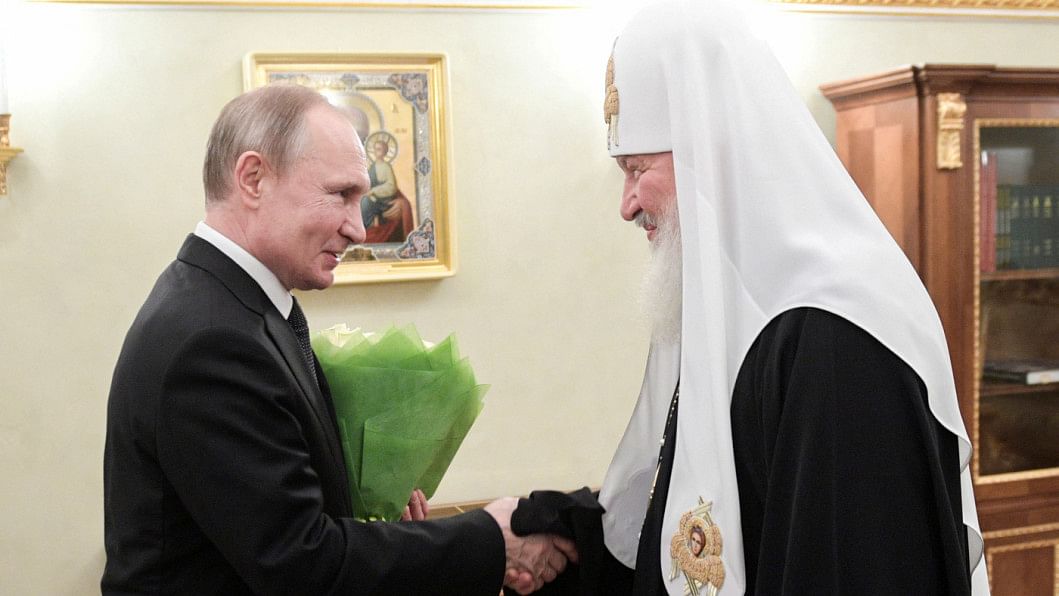
Rumours are flying about veiled jockeying within Russia over who will replace President Vladimir Putin, now that his war of aggression in Ukraine has gone so disastrously wrong. Such a struggle cannot fail to expose the morbid pathologies of Russian politics. The key players are not organised political parties, but rather gangs of oligarchs who preside over various informal nodes of power.
This explains why Russia's most effective military force on the front line in Ukraine, the mercenary Wagner Group, is not even a part of the Russian army. Russia is now a land of warlords, something one generally associates with rogue and failed states. Its current and aspiring leaders are trafficking in fever dreams of battlefield glory. Implicit in this martial culture is a Hobbesian view of life as solitary, poor, nasty, brutish, and short – and increasingly cheap.
The rise of private armies in and around Russia has led to some genuinely funny developments. For example, last year, former members of US and other Western armed forces organised a voluntary military unit to fight on the Ukrainian side. With pitch-perfect irony, they call themselves the Mozart Group – a direct riposte to the Wagner mercenaries (both names being of a German composer). One can only hope they will bomb Russian army positions with weapons more powerful than chocolate Mozartkugeln.
But the humour ends there. Russia's apparent reversion to warlordism has been abetted by a strain of Russian religious fundamentalism that openly celebrates death. Some Russian clergy have been telling their congregations that they can "become themselves" only through the act of killing. The "special military operation" in Ukraine, they are told, is a struggle for "all of God's creation." As one of Putin's chief propagandists, Vladimir Solovyov, said in a New Year's message on Russian television, "Life is highly overrated. Why fear what is inevitable? Especially when we're going to heaven. Death is the end of one earthly path and the beginning of another. Don't let fear of death influence decisions. It's only worth living for something you can die for, that's the way it should be… we are fighting against satanists. This is a holy war, and we have to win."
Likewise, Magomed Khitanaev, a Chechen theologian and Russian army commander, portrays Ukraine as a latter-day Sodom and Gomorrah, "We're asking: Oh, Ukrainians, why did you permit gay parades in Kyiv, Kharkiv, and Odessa? Why did you permit it? Why didn't you come out against them, against your government that was overtaken by fascists? Without shame before God, people, they are openly, manifestly spreading their filth."
To understand contemporary Russian ideologists like Solovyov and Putin's so-called "court philosopher," Aleksandr Dugin, one must examine the tradition of Russian "cosmism," a philosophical movement that began with the 19th-century educator Nikolai Fedorov. As Jules Evans, a philosopher at Queen Mary University of London, writes, Fedorov "was nicknamed the 'Socrates of Moscow,' because of his ascetic habits and his radical philosophy. He had one all-encompassing goal: the achievement of immortality and the resurrection of the dead."
Among Fedorov's 20th-century followers was the Soviet rocket scientist Konstantin Tsiolkovsky (who theorised about space travel), the science-fiction writer Alexander Bogdanov (who believed that one could prolong one's life through blood transfusions), and – in a fitting coincidence – the religious thinker Vladimir Solovyov.
According to Evans, this earlier Vladimir Solovyov called for "a universal theocracy under a Russian czar, to hasten humanity's 'long and difficult passage from beast-mankind to God-mankind.'" Once accomplished, adherents to the faith would "become immortal spiritual beings – only Christ has reached this stage so far, but all humanity will soon follow." While Solovyov believed that this evolution could be advanced with magic, Fedorov himself advocated scientific means. But both ultimately "agreed that humanity would be saved by Russian theocracy."
Denys Sultanhaliiev of the University of Tartu has explored the links between the two Solovyovs and established a clear lineage from Russian cosmism, in both its mystical and scientific forms. There is a direct through line from the cosmism that prevailed in the first decade of the Soviet Union to the nihilism and nuclear brinkmanship on display today under Putin.
A belief in resurrection and eternal life is key. But cosmism could emerge only within the Russian Orthodox version of Christianity, whose basic formula is "God became man so that man will become God." That is how cosmists interpret the appearance of the God-man Christ: as a model for what all of humanity should pursue.
As we watch ideological madness play out in Russia, we must be mindful of its roots in Russian Orthodoxy. Many in the West now view that tradition as an antidote to the liberal decadence that Western Protestantism supposedly unleashed. In a perverse way, they are right: death solves all problems.
Slavoj Žižek, professor of philosophy at the European Graduate School, is international director of the Birkbeck Institute for the Humanities at the University of London, and the author of Heaven in Disorder.
Copyright: Project Syndicate, 2023
www.project-syndicate.org
(Exclusive to The Daily Star)
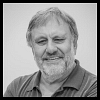
 For all latest news, follow The Daily Star's Google News channel.
For all latest news, follow The Daily Star's Google News channel. 



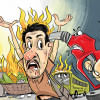

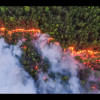
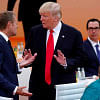
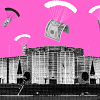


Comments